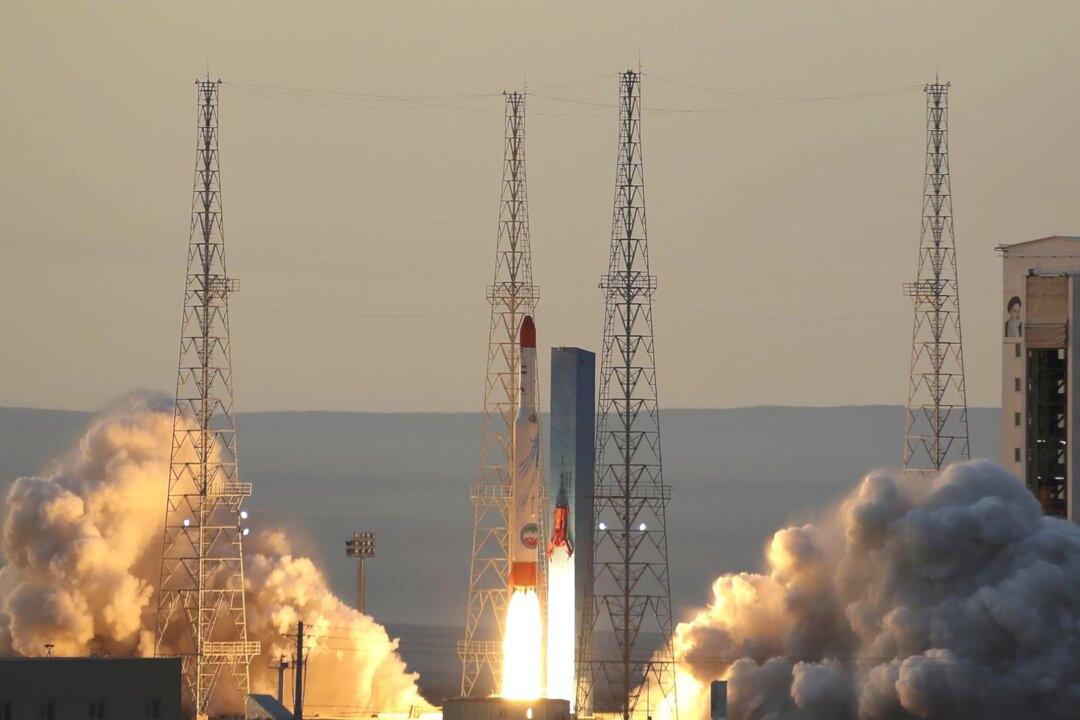The Iranian regime announced it has launched a rocket into space carrying three research devices, the country’s state television reported on Thursday.
Ahmad Hosseini, an Iranian defense ministry spokesman, said the satellite-bearing rocket named Simorgh, or “Phoenix,” had launched the three cargoes at an altitude of 292 miles (470 km) and at a speed of 7,350 meters (4.5 miles) per second.





